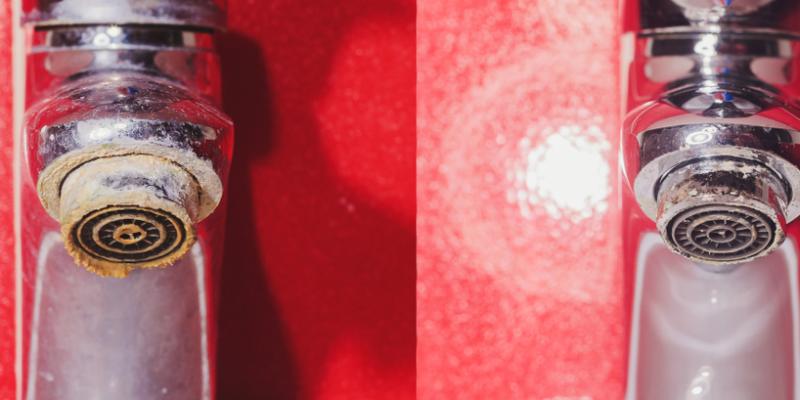Hard Water Problems and Benefits of Soft Water
21 Dec 2021

Hard Water Problems
Although everything we take into our bodies can have a profound effect on our health, people watch what food and what medicines they consume far more than the water they drink or use at home. This isn't to say people drink water without inspecting the quality. However, beyond cleanliness and the absence of impurities, water is hardly subjected to further scrutiny. And this is a shame, because certain types of water can have major effects on our bodies, and our homes.
If you live in a hard water area, you must have noticed the effects of hard water on your household: the hard water stains in the kitchen and bathroom, hard water limescale and salt deposits accumulating on taps and fixtures. The stained and dingy laundry, because hard water makes your clothes look dull after just one or two washes, due to the high amount of hard minerals in water. The home appliances have shorter life due to corrosion of heating elements caused by hard water salts.
You might have also noticed the effects of hard water on your skin and hair: hard water makes skin dry after bathing, in some cases causing eczema in people prone to dry skin conditions. Installing a water softener might be the best solution to solving these hard water problems.
Hard Water and the Reproductive System
Studies have shown that hard water can also be potentially damaging to your reproductive system. The human reproductive system, especially that of males, needs a specific mineral balance to perform its functions properly. Although the body does its best to maintain this mineral balance, there's only so much it can do if there's a continuous influx of disruptive elements. Hard water contains minerals like calcium which can affect the reproductive system if consumed in large amounts. This could potentially lead to a problem with the fertility of couples who are trying to conceive. The minerals can interfere with the production of the male reproductive hormones, especially calcium, which can lower sperm count and other reproductive functions in the male body.
Why Soft Water Works
Soft water does not contain any of these disruptive elements at all. And so, it is unlikely to interfere with the mineral balance of the body's reproductive system. In addition to not harming fertility, it is better for the skin, the hair, and the kidneys.
Infertility is not as devastating a problem these days, sure. There have been many medical advancements that can help in that regard. However, it would be in the best interest of child-wanting couples to pay as much attention to the nature of water they drink as they do to everything else that affects reproductive health. This could prove to be an intelligent decision.